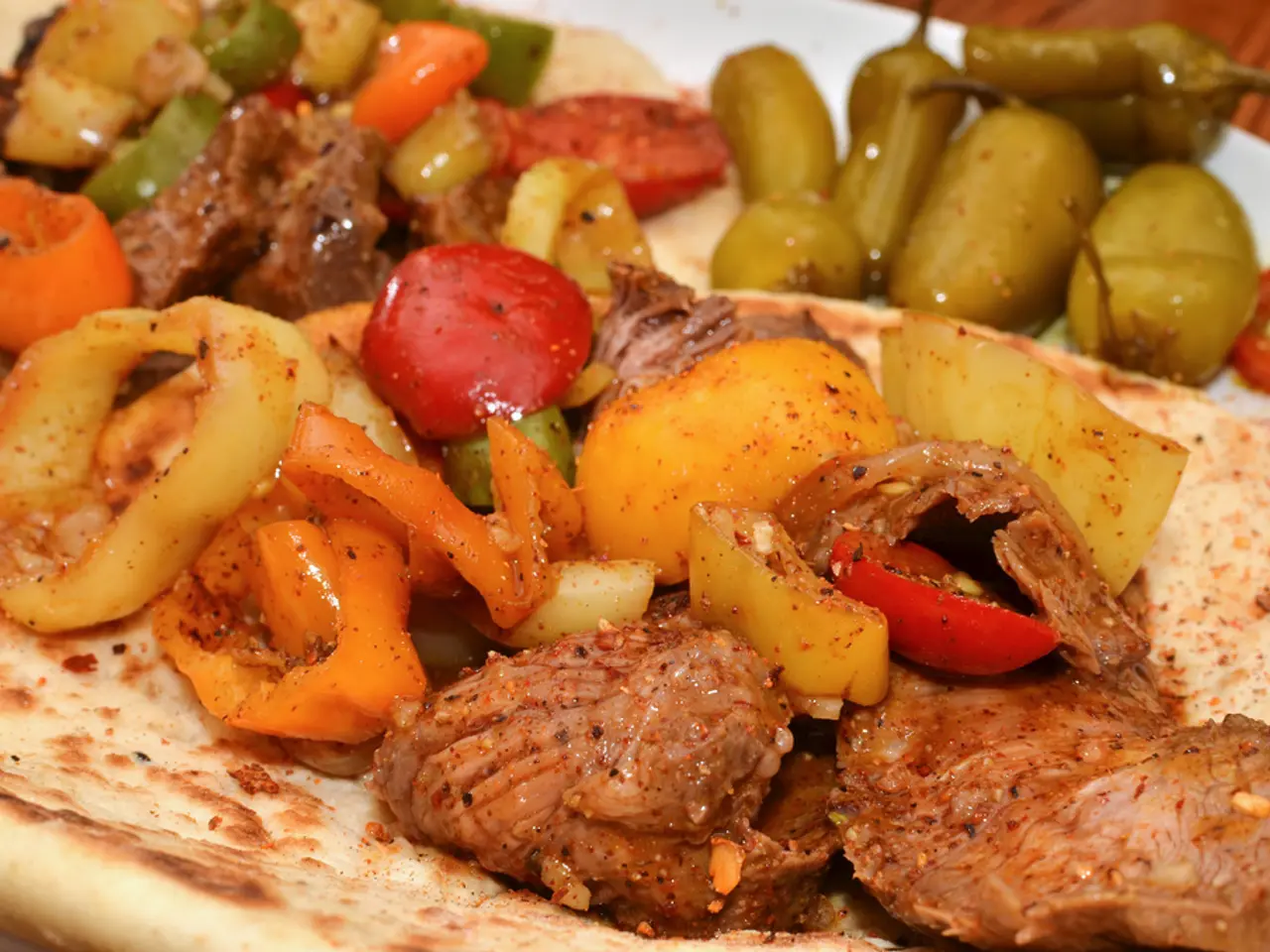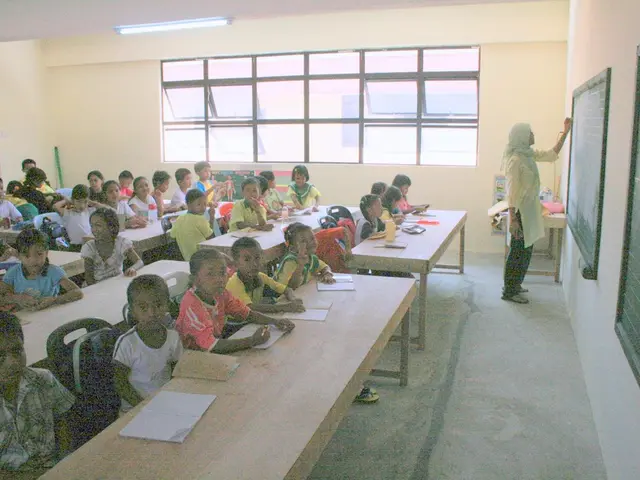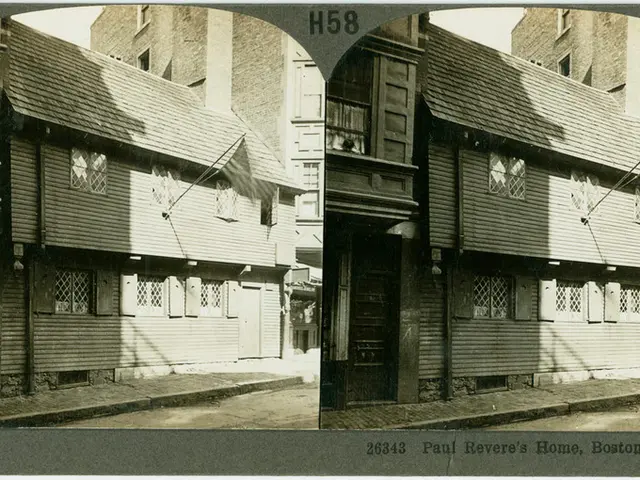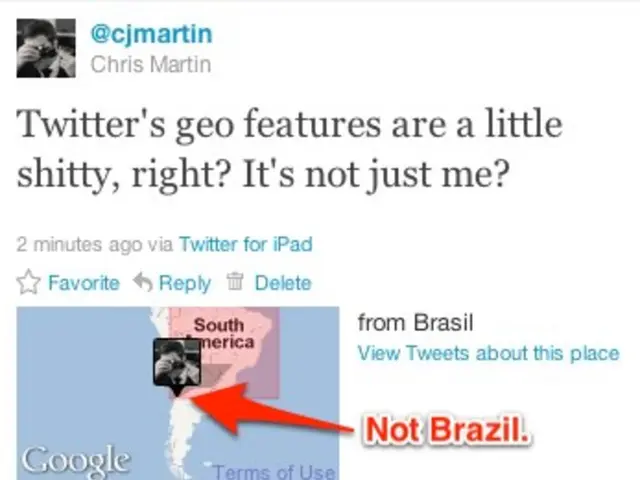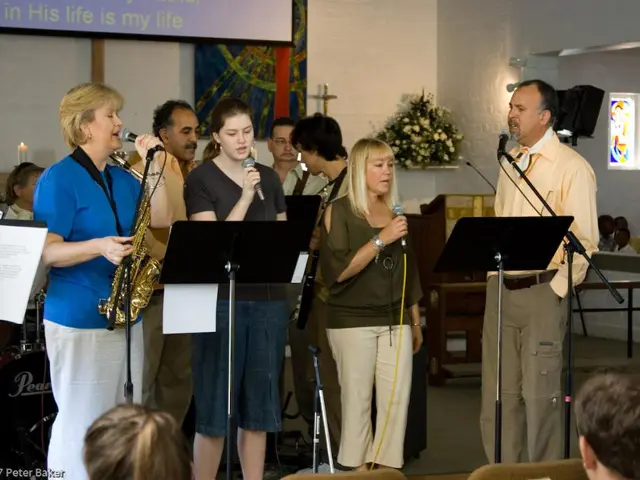Trump serves as a temporary obstacle, Sánchez presents ongoing challenges (for the Valencian Agriculture Councilor)
In the Valencian Community, Minister Miguel Barrachina, the head of Agriculture, Water, Livestock, and Fisheries, has taken a proactive approach to tackle the impact of US tariffs on the local agricultural sector. Following a plenary session, Barrachina announced that the Valencian Government has formally requested declarations to support the sector, aiming to mitigate the consequences of these tariffs [1].
Barrachina's stance towards the Spanish Government under Pedro Sánchez, however, has been critical. He has expressed discontent with national agricultural policies and management of pest control. This critique reflects Barrachina's concern over the central government's handling of issues affecting local agriculture, particularly in terms of regulatory and intervention measures that impact farm productivity and pest management [1].
The Minister's criticism extends to the European Union's Common Agricultural Policy (PAC), which Barrachina considers a "bad signal" and "very discriminatory" towards Mediterranean crops. He emphasizes that the main problem for Valencian agriculture is not Donald Trump, but Pedro Sánchez, who he accuses of boasting about being the first in Europe to apply all the prohibitions without any border control [1].
The EU and the United States have a trade agreement with a 15% tariff on EU goods entering the United States. According to Barrachina, these tariffs, while affecting "moderately" the exports of the Valencian Community in products such as wine and oil, harm consumers of low income because they will not be able to afford Valencian products or high-quality European products [1].
To support the sector in the face of falling crop prices, the Generalitat plans to eliminate expenses through minimum taxation, such as reducing ITP for the purchase and sale of agricultural parcels, eliminating the inheritance tax, and suppressing two taxes that fishermen paid. Additionally, an investment of 39 million euros has been made in plant health to find alternatives to all the prohibitions that have come from the European Union and the Pedro Sánchez Government [1].
The new Commissioner for Agriculture, Christophe Hansen, during a visit to Valencia, recognized that the medicine cabinet of farmers in Valencia is empty and needs to be filled with appropriate sanitary treatments [1]. A joint petition was signed by six representative agricultural entities of the Valencian Community and the Generalitat, expressing concern about a 23% reduction in the agricultural budget for the whole of the European Union [1].
In response to the challenges posed by US tariffs, Barrachina believes that the US tariffs are a temporary setback, but Pedro Sánchez is a permanent problem for the agricultural sector in Valencia. He also stated that food policy is a defense policy and dependence on logistics from others cannot be allowed [1].
Despite these challenges, consumers can rest assured that Valencian products undergo the most controls, ensuring their safety [1]. The Consell, the government of Valencia, is against tariffs and defends "equal treatment" [1].
[1] Source: Various news articles and press releases from the Valencian Government and Miguel Barrachina's office.
- Barrachina's criticism of the Spanish Government extends to policies related to agriculture and self-development, as he has expressed dissatisfaction with national agricultural policies and the management of pest control.
- In response to falling crop prices, the Generalitat, the government of Valencia, is implementing policies aimed at justice and personal growth for the agricultural sector, such as minimizing taxes and investing in plant health.
- In the realm of politics and legislation, the new Commissioner for Agriculture, Christophe Hansen, has acknowledged the need for education and self-development in the Valencian agricultural sector, referring to the lack of appropriate sanitary treatments as a concern.
- Amidst war and conflicts in the global trade arena, such as the US tariffs on EU goods, the Consell, the government of Valencia, has maintained a stance that promotes general news and justice, advocating for equal treatment and challenging any discriminatory practices.
